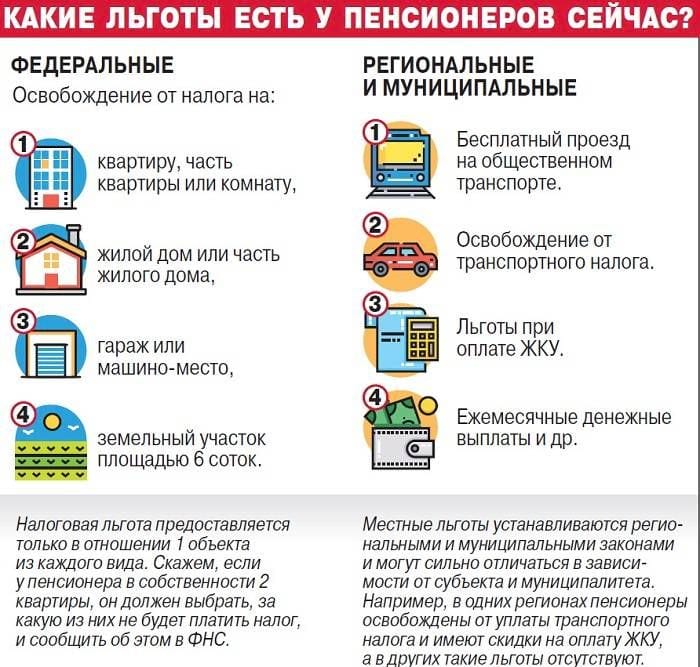Regulatory framework and latest changes for 2020
A pensioner who continues to work retains standard privileges for working-class citizens and also claims old-age bonuses from the state.
According to Federal Law No. 173 of December 17, 2001, all working elderly Russians have the right to state benefits. In 2020, these are women over 60 years old and men over 65 years old. In some cases, there is the possibility of early retirement.
The additional labor pension is calculated based on:
- the employee's length of service;
- average salary for a fixed period;
- received working rank;
- specifics of the work.
In 2020, there are no innovations regarding accruals for older Russians. But we can hope for an increase in the basic pension from August 1.
According to the official, the Russian pension system is now very confused and complicated
According to the official, the Russian pension system is now very confused and complicated, and the 2020 moratorium, naturally, did not have the best impact on recipients. The return of indexation will certainly lead to the restoration of social justice, but it is difficult to say how much such a decision will cost.
State Duma deputy Oleg Shein also stated that the adopted amendments provide for an increase in the standard of living of working citizens. According to the parliamentarian, additional amounts will be calculated automatically and there is no need to write any statements for this.
The authorities have already begun a step-by-step solution to this issue. Thus, from July 1 of this year, the mechanism for indexing pensions for citizens of retirement age who are guardians was restored. Let us recall that previously such persons were classified as working pensioners and, according to the introduced moratorium, did not have the right to increase their pensions.
source https://finance.rambler.ru/money/44679374-pensiya-dlya-rabotayuschih-pensionerov-s-1-yanvarya-2021-godu/
What benefits are provided under labor legislation?
For working pensioners, there are special concessions and preferences described in the Labor Code of the Russian Federation. The execution of such preferential rights is mandatory and the employer does not have the right to ignore their execution.
Additional day off
Older employees are entitled to two additional days off per year to undergo medical examination. The management is obliged to pay for these days, but it is illegal to refuse to provide them.
Unpaid leave to the main
In addition to the main leave, older workers claim an additional two-week unpaid rest. The citizen independently decides when he can interrupt this vacation. The authorities have no legal grounds to force a citizen to go on unpaid vacation.
Special assessment of working conditions
The labor rights of a pensioner are almost no different from the rights of an ordinary employee, but there are some privileges:
- Attendance at work no more than 40 hours per week.
- If a person decides to quit, then he has the right not to work the accepted 14 days. The pensioner is allowed to resign immediately.
- When the workforce is reduced, the pensioner has “immunity” - he can be fired only in extremely acute cases.
- The right to a shortened working day.
Types of employment contracts
A pensioner can be hired for a permanent or temporary job, and he can also combine several jobs. Let's consider what contracts can be concluded with pensioners:
- A fixed-term contract is concluded only by agreement of the parties for a certain period and is limited by an end date. Since the conclusion of this agreement may be considered as discrimination of retirement age.
- Indefinite contract - concluding an indefinite employment contract with a pensioner is no different from concluding one with any other employee. The Labor Code does not provide for any special conditions.
- Employment contract on part-time work - part-time work must be performed in free time from the main job, and therefore the current employer should not worry about what the employee does in his free time. Moreover, the employee has the right to take on several part-time jobs; the Labor Code of the Russian Federation does not limit the employee in this matter.
- A civil contract is concluded with freelancers. Freelance employees are workers whom the employer hires to perform a certain amount of work, to provide certain services for a certain period of time. Such employees are not included in the staff of the enterprise and no employment contract is concluded with them.
If an employee working for you reaches retirement age, but wishes to continue working, you do not need to take any special actions (for example, renew the contract). The current agreement simply continues to be in force. You do not have the right to fire an employee just because he is a certain number of years old.
Important: If the nature and conditions of work make it possible to conclude an open-ended contract, the employer does not have the right to do the opposite, because This is an administrative violation and leads to financial liability in the form of a fine.
Assistance to certain categories of working pensioners
The core working class of retirees has its privileges, although there may not be many of them. But for certain layers of working older people, other additional costs and government assistance are provided.

Veterans of Labor
Labor veterans who have continued to increase their work experience are provided with:
- vacation days at any time with the same salary;
- thirty days administrative leave, if necessary;
- seasonal discount tickets for suburban public transport;
- compensation payments for connecting the gas pipeline;
- free dental prosthetics in public clinics.
Disabled people
Additional preferential conditions for elderly disabled people:
- increasing unpaid leave to 60 calendar days;
- 100% discount on a trip to the sanatorium;
- prescription medications at discounts;
- an expanded range of free medical procedures provided;
- payment of the full amount of salary when working on a shortened working day, taking into account the development of illnesses;
- work responsibilities compatible with health;
- the working week is reduced to 35 hours;
- free education at universities and priority admission by the admissions committee.
Necessary documents for hiring a pensioner
A retired employee has the same rights when applying for a job as any other person applying for this position who has not reached retirement age.
- When concluding an employment contract, he must present (Article 65 of the Labor Code of the Russian Federation): a passport or other document identifying him;
- work book;
- insurance certificate of state pension insurance (exception - loss of such a document);
- military registration documents (for pensioners liable for military service);
- document on education, qualifications or special knowledge (to be presented by a pensioner who enters a job that requires special knowledge or special training).
- Tax registration (TIN certificate if available).
In some cases (taking into account the specifics of the work), the employer may request other additional documents necessary for it.
Obtaining benefits for working pensioners - step-by-step instructions
When applying for preferences, you need to carefully read the labor conditions in force in your area of residence: what benefits are available, what you can additionally count on in a particular region. Next, you need to go to the local Pension Fund office, where they will help you select the required documents.

Standard immutable list of documentation:
- passport of the Russian Federation;
- pensioner's ID;
- certificate from place of work;
- Russian registration;
- application for benefits.
This list may be supplemented with other documents. For example, if you need to apply for subsidies for housing and communal services, the administration may require additional paperwork:
- certificate of family composition;
- certificate of income of all family members;
- documents confirming ownership of a house or apartment.
Receiving benefits for working pensioners is a stimulating motivation to stay in the workplace. Continuing to work, the pensioner, in addition to his salary, will also receive his legal pension, thereby increasing his own income. You will not be able to receive benefits automatically. There is a certain algorithm for design. Therefore, you should take care of this in advance.
Some changes may be introduced in 2021
Current legislation does not provide for indexation of pensions for working pensioners from January 1. But according to some reports, some changes may be adopted in 2021, as announced by parliamentarians during the summing up of the spring session.
Legal basis
The need to adjust Russian legislation in terms of changing the size of pensions for different categories of citizens was announced at the final meeting of the State Duma, held on July 22 of this year. During the discussions, deputies discussed plans for the autumn session, where this issue occupied the main place.
To bring pension legislation into line with the updated Constitution of the Russian Federation, it is necessary to revise some aspects. Thus, according to the basic law of the country, pension indexation must be carried out at least once a year. Meanwhile, payments to working pensioners have not increased since 2016.
In parallel with the consolidation of this norm, it is planned to resolve the issue of restoring indexation for the considered category of citizens of the Russian Federation. Sergei Neverov, leader of the United Russia faction, stated this at a meeting of the State Duma.
Rights of working pensioners in Russia
Hello dear readers of the blog “Disability and Social Protection”. In this article we will talk about the rights and benefits provided to working pensioners.
Rights of a working pensioner
According to Art. 7 Federal Law of December 17, 2001 “On labor pensions in the Russian Federation”, men aged 60 years and women aged 55 years have the right to receive an old-age labor pension. For its appointment, future pensioners must contact the Pension Fund of the Russian Federation (PFR) at their place of residence.
But, as you know, not all pensioners decide to stay at home after they reach retirement age; some of them continue to work, and questions arise about their rights, to which sometimes they do not know the answer.
1. The employer proposes concluding a fixed-term contract. What to do?
In accordance with Article 59 of the Labor Code of the Russian Federation, the employer has the right to conclude a fixed-term employment contract with pensioners who have been assigned a pension according to their age and length of service or with pensioners receiving a pension on preferential terms (for example, the work was associated with harmful and difficult working conditions). But a prerequisite for this conclusion is the mutual agreement of both parties.
If an employee who has reached retirement age is offered by the employer to terminate the employment contract and enter into a fixed-term employment contract instead, then his actions can be regarded as illegal, and they can be freely appealed in court. In addition, illegal actions of the employer include the case when an employment contract is repeatedly re-signed with a pensioner working in the same place according to his age category. As a rule, when appealing this action, the court recognizes such an agreement as unlimited.
2. Is it possible to fire a working pensioner?
The short answer is yes. A working pensioner is not included in the category of citizens, for example, such as disabled people or pregnant women, who are given some privileges upon dismissal. He, like an ordinary working citizen, can be fired, of course, with good reason. For example, a citizen comes to work in a state of alcoholic intoxication or, in general, skips work. This fact gives the employer the right to dismiss. But this process itself has some features, which include the following:
- When a working pensioner is dismissed due to retirement, the employer terminates the employment contract within the period that the employee indicated in the resignation letter;
- According to Article 80 of the Labor Code of the Russian Federation, a working pensioner has the right to dismissal at his own request without two weeks of work.
3. Can an employer lay off a working pensioner?
As in the previous question, the answer is the same - yes, a working pensioner can be laid off, just like an ordinary working citizen. The exception in this case is the reduction of WWII disabled people and combat disabled people who received disabilities in connection with the defense of the Fatherland. Article 179 of the Labor Code of the Russian Federation gives them some privileges, according to which, with equal labor productivity, they are given preference in remaining in the workplace.
In addition, Art. 32 of the employment law states that a citizen who needs to work for no more than 2 years before receiving a pension may be granted an early pension, but on the condition that his further employment is not possible
.
Also, women with continuous experience of 20 years or more and men with continuous experience of 25 years or more may have the terms of unemployment benefits extended up to 36 months
, but under the same condition that their further employment is not possible.
4. Can a working pensioner count on part-time work?
According to Art. 93 of the Labor Code of the Russian Federation, the following category of citizens has the right to work part-time:
- Pregnant women (at their personal request);
- One of the parents, guardians or trustees with a child under 14 years of age;
- Persons caring for a sick family member on the basis of a medical certificate available to them.
As you can see, working pensioners are not included in this list of citizens. Of course, they can apply to the employer with a request to reduce their working hours, but in this case they may receive a completely legitimate refusal (the exception is when the pensioner has a disability).
In general, the Labor Code of the Russian Federation does not provide any exceptions for working pensioners and veterans. They have the right to work at night, on weekends and holidays, to work overtime, and the length of the working week does not give them any privileges over ordinary employees.
5. Does a working pensioner have the right to additional leave?
According to Art. 128 of the Labor Code of the Russian Federation, a working pensioner has the right once a year to additional unpaid leave of 14 days. And the employer has no right to refuse him this.
In addition, pensioners belonging to the following categories of citizens are also entitled to unpaid leave:
- Disabled people – up to 60 days a year;
- WWII participants – up to 35 days a year.
Without the consent of the employee, forced provision of this type of leave is prohibited. If an employee has received such leave, then he retains the right to interrupt it at any time. It can also be added to the next annual leave without pay.
What is a pension?
Who are pensioners?
Having retired and being in excellent physical shape, having a good memory and a fighting spirit, you can continue to work.
But here you need to analyze whether the double payment will remain: the pension and the salary received at the place of work or whether only the salary will be paid.
And if the salary level is lower than the accrued pension, is it worth going to such a job?
Official registration of an old-age pensioner for work will allow him to receive a pension and wages established at his new place of work. Moreover, the Pension Program has introduced a points system, which allows you to increase its size for each year worked in retirement.
As for a military pensioner, there may be two options. If he, being a pensioner, enters into a contract with the Armed Forces of the Russian Federation, then he will only be paid a salary.
If he is accepted into a civilian position, he will be paid a military pension (for length of service) and wages at the new job. In the near future, it is possible to receive two military pensions: one for long service and another for old age.
To calculate an old-age pension, you will need 5 years of work experience in a civilian position after retirement.
Disabled people with working group I or II can receive a salary at work and a disability pension.
Those with disability group I, recognized as a non-working group, receive only a pension.
In the event of the loss of a breadwinner, a pension is paid to members of his family. When family members reach the age specified by law, these payments will no longer be accrued, but an old-age pension will be issued.
The procedure for hiring a pensioner
The procedure for accepting a pensioner is identical to the standard process for employing an employee
The procedure for hiring a pensioner includes:
- collecting the necessary documentation for drawing up an employment agreement;
- concluding an employment contract with a pensioner;
- preparation of an employment order in the T-1 form;
- creating and filling out a personal T-2 card;
- familiarity with internal regulatory documentation relating to job descriptions, labor regulations, instructions on labor protection and safety in the workplace, as well as other local acts relating to the employee’s activities;
- conducting initial and on-the-job training.
In some cases, a pensioner will be required to apply for a job; it is not a mandatory document for hiring a person, but in some cases it is required by the employer to ensure proper document flow.
Peculiarities of registration for work of pensioners
An employer is not obliged to hire a person of retirement age if Russian legislation provides for age restrictions for certain professions or positions:
| Job title | Age limit |
| related to the management of educational institutions | 65 years for women 70 years for men |
| civil servants | Must not exceed 60 years of age |
A pensioner has the right to receive additional days of unpaid leave during work; otherwise, no specific features of the pensioner’s work process are provided. He can be given full financial responsibility, sent on a business trip, have an irregular working day established with his consent, or be instructed to do work overtime.
The pensioner continues to receive a pension - this right does not depend on the fact that the pensioner is employed. The only thing that a working person of retirement age is limited in is that his pension does not increase due to the inflationary process.
Conclusions and recommendations
- When working informally, a pensioner should carefully choose an employer.
- A pensioner should look for places of official employment to avoid fines.
- After official employment, in order to receive an indexed pension, a citizen should quit his job and then get a job again. Thus, indexation of payments occurs only for non-working pensioners.
Author
Breslav Lev Andreevich
Your comments are very important and allow us to identify truly useful materials that are interesting to a wide range of people. Don't forget to rate publications and share your opinion with other site members.
Probation
The possibility of establishing a probationary period when hiring is provided for in Art. 70 of the Labor Code. You can test a pensioner. Pensioners are not included in the list of persons for whom no employment test is imposed. This means that general rules apply to them. The duration of the test depends on the type of contract concluded, which are presented in the table:
| Type of agreement | Duration of probationary period |
| Fixed-term and open-ended contracts for management positions and chief accountant | Up to 6 months |
| Open-ended and fixed-term contracts up to 6 months | Up to 3 months |
| Fixed-term contract up to 6 months | Up to 2 weeks |
| Fixed-term contract up to 2 months | Not installed |
| Part-time agreement | Defined as under an open-ended contract |
| Civil contract | Not installed |
What are the risks of unofficial employment for a pensioner?
If a pensioner is employed unofficially, reporting on him is not carried out and the citizen continues to receive an indexed pension. And if the amount is less than the subsistence level, the pensioner receives additional social benefits.
Today, tax authorities closely monitor pensioners who work unofficially. In addition to additional assessment of unpaid taxes, the pensioner will face a fine of 120,000 rubles and administrative fines for unlawfully receiving additional subsidies and benefits.









